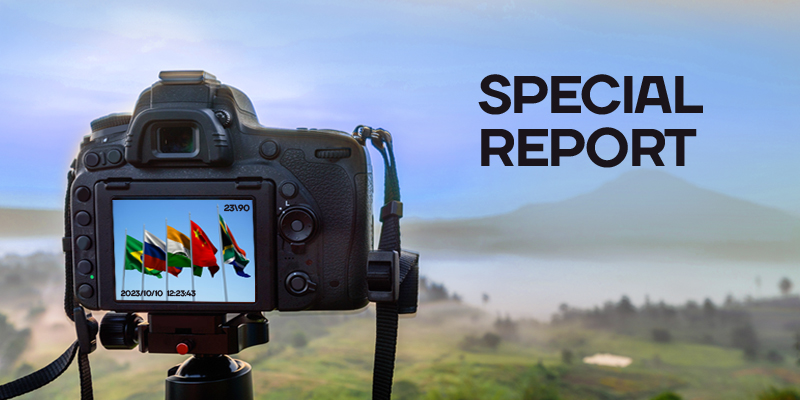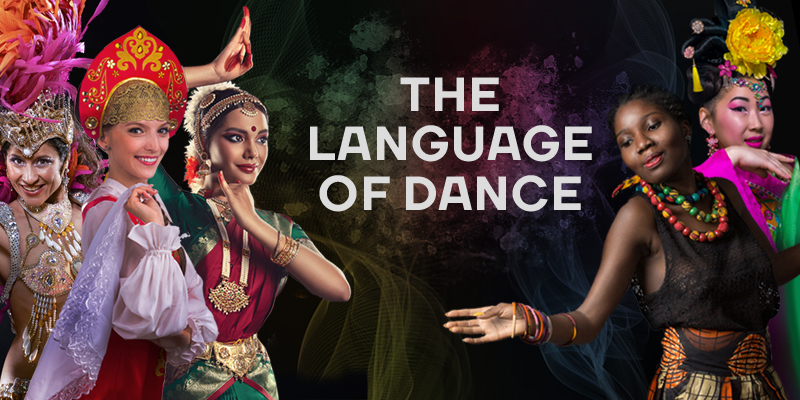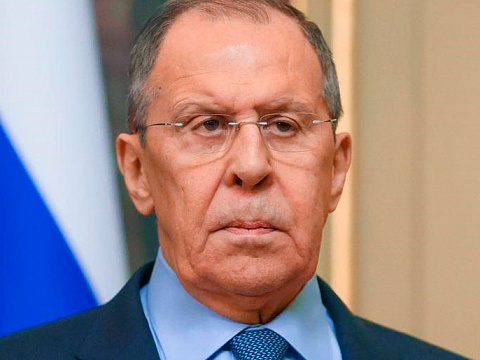Nyana Molete: the prospects for partnership between Russian and South African mass media are huge
Nyana Molete is an editor-in-chief of the BRICS Africa Channel, which covers the news agenda of the BRICS countries and the African continent and provides in-depth analysis of current events in areas that affect the lives of BRICS citizens and the world at large.
Throughout his career, Nyana has held key positions in renowned media organizations. From 1997 to 1999, he served as the Executive Producer of Newshour, a weekly current affairs show on SABC TV. In this role, he commissioned and assigned stories to newsrooms across the country, ensuring the programme delivered insightful analysis of current events.
Nyana is an accomplished journalist with extensive experience in the field of television broadcasting in South Africa. With a career spanning over several decades, Nyana has made significant contributions to the industry, excelling in various roles and demonstrating a deep passion for journalism.

In an exclusive interview with the editor-in-chief of the TV BRICS, Anna Lisina, the journalist talked about his career and the prospects for partnership between Russian and South African mass media.
Your journey in journalism and documentary production began in the beraly 1980’s. Why did you choose this particular direction?
I think we have to put everything into some kind of context. I grew up in a township called Soweto and in 1976, I was a student in Soweto when the uprisings happened. Now that set up the uprisings in Soweto changed everything for me because I became very politicised at the time, became very conscious of the fact that our society needed to change. And I went with a friend to do a film. And they were doing a documentary film about some freedom fighters who had died a long time ago. And I was attracted to this medium because I thought that it could be a tool for education, it could be a tool for information, it could be a tool for connecting people. I really got attracted to the medium because I felt that it is a very useful tool that could be used for change, for instance.
With your guidance, a highly successful breakfast programme Morning Live became the most-watched morning programme in South Africa, surpassing ratings of some evening prime time slots. What is your main secret? What was the main rule that allowed you to succeed and make your programme the most popular?
Again, context here is very important. Morning Live is still running, it is a programme on South African national TV, SABC. At the time when Morning Live started in 1999, the country was going through some transition. The SABC itself was going through a transition. And we decided that Morning Live was going to be a programme that is not just for the elite. We made connection with the people. The first outside broadcast we did for instance, or one of the first outside broadcasts we did, I remember was in a very rural village in Limpopo where a community was celebrating an old lady who was turning 100 years. And we featured that lady on the programme and we did this live. So, and then the programme grew that way because the programme had that kind of connection with the country, that kind of connection with the people. And we also did quite a number of stories that were about the beauty of this country. We did a lot of tourism stories. It was a programme with a lot of diversity. We showcased a lot of the positive things about this country. So it became quite a happy, positive programme.

BRICS Africa Channel begins broadcasting on the StarSAT platform, channel 509 soon. What's the agenda of the channel? What topics connected with the BRICS countries and the African continent will be covered?
The idea behind the show is to bring the peoples of the BRICS countries together. To highlight the cultures of the different countries, to highlight the economic connections between the BRICS countries. We plan to produce stories that allow viewers to learn something new about these countries. So that, the people of our different countries can make use of that information to guide their own lives and to see what it is, what this BRICS thing means for them. That it is not just a thing about the countries’ leaders, but it is about the people as well. And the people of these countries can take advantage and create people connections between and among themselves.
So the kinds of topics that we’ll be looking at would be travel shows, we’ll be doing cooking shows, showing people of the different countries what is common, for instance, in terms of the diets or the food that they eat, what is not common, what makes Chinese food Chinese, what makes South African food or African food African.

And also we’ll deal with issues of development. Countries like China, for instance, have gone a long way in uplifting people from poverty. Our countries are still grappling with issues of poverty and things like that. So, we look at the lessons from China, we look at what China has done in terms of lifting its people out of poverty and whether that kind of thing would be possible in our own countries. So, the channel is going to be dealing with quite diverse topics. We’ll even share, exchange dramas, films and documentaries between these BRICS countries. So, We want to become a platform for bringing the peoples of our countries together.
What prospects are there for the development of a media partnership between Russia and South Africa?
The prospects of partnership are huge. We have already started, we have an agreement, for instance, with TV BRICS Media Network in Moscow. We are going to be exchanging reports or stories between us and them. And we are going to be also coordinating between the other BRICS members, getting material from them and exchanging ideas, exchanging content. We are creating on the BRICS Africa Channel a slot where TV BRICS is going to be showcasing their content. So, we are hoping that this is just a start, and we are going to be deepening this collaboration further and further as time goes on.
A meeting of the Russian-African Club has been recently held at Lomonosov Moscow State University. As a result, a memorandum on informational interaction between the African and Russian media was signed, and an Association of Russian and African journalists was established. How do you think such steps will contribute to the development of the media of the two sides?
No country is an island. We exist in the world together with other countries or together with other people. The more we are connected the better I think we are. I think this kind of initiative will help a lot in terms of bringing understanding between the continent and between our Russian colleagues. And also I think it’s going to help in terms of bringing more understanding, bringing more clarity, bringing more cooperation. Because if we do not connect, we can’t know about each other, we can’t know each other. The only way for us to know each other is by us connecting, is by us having some kind of relationship. In this case it’s a kind of journalistic one. And I think it’s going to be very useful because both sides are going to learning a lot from one another.

And what topics are of most interest to South African readers in your opinion?
That is a bit of a difficult one because South African readers have diverse interests. It depends on the people that you talk to in terms of what would interest them. For instance, in South Africa if you speak about television, there’s a lot of TV stations here, there’s a lot of TV networks and a lot of channels. There are those that do news, there are those that do pure entertainment. So, people have very diverse interests in terms of what they want to read and what they want to watch. I think it is up to us as those who practice in the area of journalism and production of content to offer our audiences the best that we can. And in my view the best that we can offer as BRICS Africa TV is content that is substant, content that will add value to people’s lives rather than just entertainment for the sake of entertainment.
How has the South African media market changed with the arrival of new digital technologies?
It has changed a lot. A lot of media houses, for instance, have had to respond to the proliferation of new technologies. In the past people who are in the print media, for instance, just had to print out their newspapers and sell their newspapers but now they are forced to operate online as well. Broadcasters also have been forced to enter into the digital field. Things are different now because the digital transformation is rapidly gaining momentum. And I don’t think only in South Africa but in all parts of the world. It has had a major impact on how people organise themselves, on how people operate.
Photo: istockphoto.com
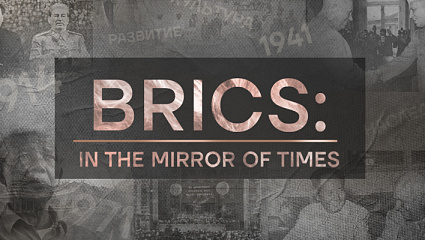
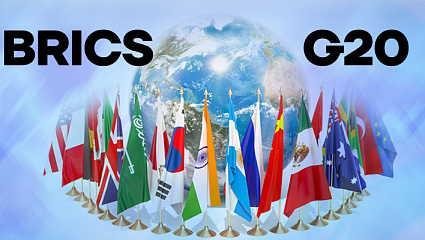


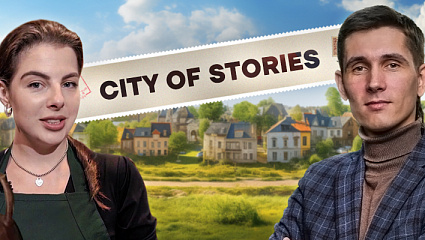


 DIGITAL WORLD
DIGITAL WORLD









